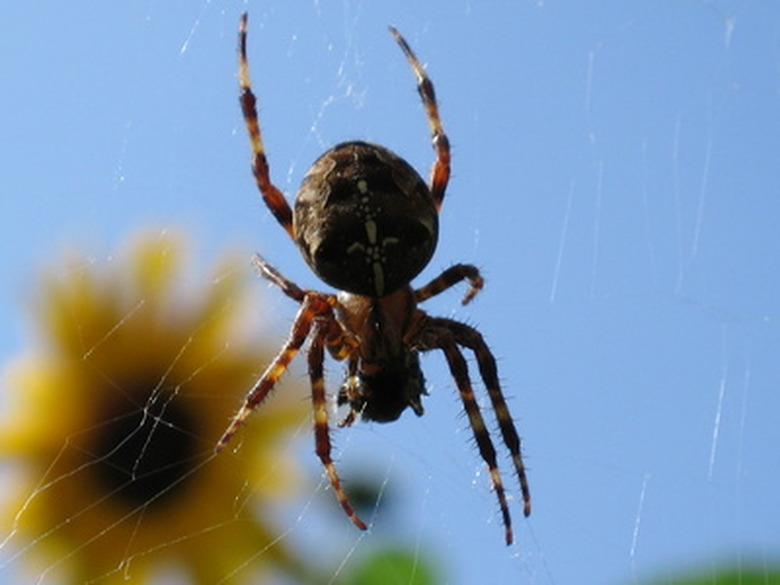How To Use Hedge Apples To Control Spiders
Hedge apples are the fruit of the Osage orange tree, which is native to southern Oklahoma and northern Texas. Hedge apples are not poisonous, but they are an effective repellent against insects and spiders. Using hedge apples to control your spider population is an easy, chemical-free pest-control option. If you do not have access to a hedge apple tree, the fruit can be purchased at grocery stores and farmers' markets.
Step 1
Place whole hedge apples in areas where spiders are seen. Set the hedge apples on a piece of tinfoil or in a small bowl to prevent the juice from ruining flooring, cabinetry or other materials in your home. Place hedge apples about two feet from areas of spider infestations.
- Hedge apples are the fruit of the Osage orange tree, which is native to southern Oklahoma and northern Texas.
- Place whole hedge apples in areas where spiders are seen.
Step 2
Cut the fruit in half or crush it with a hammer to get quicker results. Opening the fruit immediately exposes pests to the milk of the fruit. Place the exposed pieces in a dish. Set the dish in the area where you most often see spiders.
Step 3
Dispose of hedge apples once the majority of the green skin has disappeared. Hedge apples will last two to three months in a cool room or area.
Hedge Apples To Control Spiders
Commonly known as hedge apples, the fruits of the Osage orange tree (Maclura pomifera) supposedly have spider-repelling properties that border on magic. Given that spiders willingly weave their webs on Osage orange trees and on hedge apples themselves, it seems unlikely that the fruit repels spiders. The repellent properties came from compounds inside the fruit, however, and were ineffective when the fruit remained whole. The Osage orange simply **isn't an effective or practical pest control method. ** To use them as spider repellent, slice the fruit to release the chemicals contained within and lay the fruit slices around your home's foundation or in your basement. In addition to hedge apples, an internet search for natural spider repellents will turn up thousands of results claiming that chestnuts naturally repel spiders as will peppermint oil and lemon oil. Although lemon oil and hedge apples may fail you, there are effective ways to reduce the number of spiders who visit your home. You can also reduce your spider population by removing the plants and foliage from your home's foundation. If you're concerned about using dangerous chemical deterrents, let him know when you speak to him.
- Cut the fruit in half or crush it with a hammer to get quicker results.
- To use them as spider repellent, slice the fruit to release the chemicals contained within and lay the fruit slices around your home's foundation or in your basement.
Things Needed
- Tinfoil
- Small bowls
- Knife
- Hammer
- Rubber gloves
Warning
Wear rubber gloves when handling hedge apples. The juice of the fruit can be irritating to sensitive skin.
References
- Hedgeapple.com
- Iowa State University Extension: Catnip and Osage Orange Components Found to Repel German Cockroaches
- University of Nebraska Cooperative Extension: Insects, Spiders, Mice & More
- U.S. National Library of Medicine National Center for Biotechnology Information: Natural Compounds as Spider Repellents: Fact or Myth?
- Country Living: 10 Natural Ways to Keep Spiders Out of Your House
- Terminix: Does Natural Spider Repellent Work – Myth vs. Fact
- Burke Museum: Myth: Spider Repellants
- Iowa State University Extension and Outreach: Hedge Apples for Home Pest Control?
